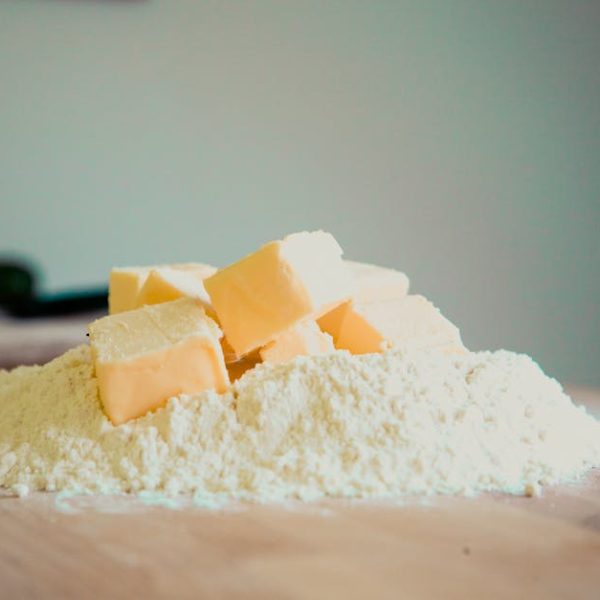From farm-fresh to store-bought, eggs are a staple in many households due to their high nutritional value and versatility in different dishes. Knowing their shelf life is crucial to ensure your food’s safety and quality. Typically, fresh eggs can last for up to 5 weeks beyond the sell-by date when stored correctly in the refrigerator. However, numerous factors influence this duration, leading to a multitude of answers to the question, How long do fresh eggs last?
Understanding the Freshness of Eggs
The freshness of eggs is affected by factors such as the type of eggs, how they are packaged, the conditions they are initially kept in, and the method of storage adopted by the consumer. For example, eggs from a farmer’s market where chickens are free-range may have a different shelf life compared to store-bought eggs kept in controlled environments.
Evaluating various egg storage techniques, we can see that each comes with its own set of advantages and drawbacks.
- Keeping eggs at room temperature allows them to last longer in baking recipes. However, an increased risk of bacterial growth exists.
- Storing eggs in the refrigerator prevents bacterial growth, but may cause the eggs to absorb smells from other food in the fridge. This may affect their taste.
- Freezing eggs can extend shelf life to a year, but it requires extra preparation as eggs must be beaten before freezing.
The Shelf Life of Fresh Eggs
When kept under optimal conditions, fresh eggs can maintain their quality for a considerable amount of time. However, these durations can vary considerably based on storage conditions:
- Room Temperature: ~2 weeks
- Refrigeration: ~5 weeks beyond the sell-by date
- Hard-Boiled (refrigerated): ~1 week
Please note these are rough estimates and the actual shelf-life may vary.
How to Determine if An Egg is Still Fresh
There are several methods to ensure that an egg is still safe for consumption. The ‘float test’ is a popular one, wherein a fresh egg will sink in water while a spoiled one will float. Another simple way is to crack open the egg: if it releases a foul odor, it’s not safe to eat.
Here’s how you can conduct the float test at home:
- Fill a bowl with cold water.
- Gently place the egg in the bowl.
- If the egg sinks and stays at the bottom, it is still fresh.
- If the egg floats to the surface, it should be discarded.
Tips on Handling and Storing Fresh Eggs
You can maximize the freshness of your eggs by handling and storing them properly. For example, it’s wise to keep the eggs in their original carton rather than the refrigerator’s egg bin. The carton protects the eggs and prevents them from absorbing other foods’ odors.
Pro Tip: The optimal temperature for egg storage is just below 40°F (4°C). Position the eggs with the pointed end down to keep the yolk in the best condition.
In the next section, we will debunk some common myths about egg freshness.
Common Myths About Egg Freshness Debunked
Oftentimes, misinformation can cause confusion about how to properly assess the freshness of eggs. Here are a couple of frequently circulated myths and the truth behind them:
- Myth: Cloudy egg whites mean the egg isn’t fresh.
Fact: On the contrary, cloudy egg whites usually signify a very fresh egg. The cloudiness comes from carbon dioxide, which hasn’t had time to escape the eggshell in newly laid eggs.
- Myth: Eating raw eggs can give you Salmonella.
Fact: Although there’s a risk, it’s quite small. Salmonella is a bacteria that is found on the outside of the eggshell and can potentially enter the egg if it’s cracked. Keeping your eggs refrigerated and cooking them properly minimizes this risk.
Comparing these common misconceptions to the truth, it’s clear that having factual knowledge helps in accurately determining egg freshness and handling them safely.
Conclusion
There you have it! A quick and easy guide to understanding how long fresh eggs last and how to properly store them. No more guesswork or relying on sell-by dates alone. With the right knowledge in hand, you can safely enjoy the nutritional goodness of eggs without worry.
Remember, always conduct a quick freshness test before using eggs, especially when baking. Don’t let myths steer you in the wrong direction. Always store eggs properly to maximize their shelf life, and most importantly, enjoy your eggs knowing that you’re consuming a fresh, nutritious and safe product!
Happy cooking!
Key Takeaway:
- Shelf life of fresh eggs can vary significantly based on different storage conditions such as room temperature, refrigeration, and freezing.
- There are simple ways to determine the freshness of eggs, such as the float test and checking for any foul smell.
- Practices such as storing eggs in their original carton and keeping them at an optimal temperature just below 40°F (4°C) can extend their shelf life.
- Some common misconceptions about egg freshness, like cloudy egg whites indicating spoilage, are debunked.
Understanding the freshness of eggs and how to store them properly ensures safe consumption and eliminates unnecessary wastage. Enjoy the versatility and nutritional benefits of eggs without worrying about their freshness.
FAQs
Q: Can I store eggs at room temperature?
A: Yes, you can store eggs at room temperature. However, they tend to last longer when refrigerated due to lower risk of bacterial growth.
Q: Should I wash eggs before storing them?
A: It’s not advisable to wash eggs before storing them as this can remove the protective coating on the egg shell, making them susceptible to contamination.
Q: Are brown eggs fresher than white eggs?
A: The color of an eggshell does not indicate the freshness of an egg. It mostly depends on the breed of the hen that laid the egg.
Q: Can I freeze eggs for longer storage?
A: Yes, but you have to crack and lightly beat the eggs before freezing. This method can extend their shelf life up to a year.
Q: Can I eat an egg that has a slight smell?
A: When in doubt, it’s safer to discard the egg. A foul smell usually indicates that the egg has gone bad and may not be safe to consume.
Explore more interesting posts on our website and feel free to share this article with your friends and family.






